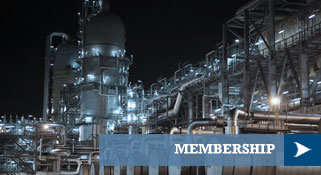A recent survey by the American Energy Alliance shows that likely voters in eight key states want to see elected officials in Washington grow the economy and address inflation rather than focus on climate change. In fact, only 3% identify climate change as the most pressing issue facing our country. Moreover, a majority of voters — including 63% of Republicans — oppose a proposal in Washington to impose a new carbon tax on imported goods.
There is good reason to oppose this measure, called the Foreign Pollution Fee Act, as well as a related measure, called the PROVE IT Act. The idea behind taxing imports based on the carbon emissions in the country of origin may seem reasonable at first. But anyone with a fundamental understanding of economics can tell you that domestic job creators and working Americans are the ones who will actually pay for the increased costs associated with this new tax.
Together, these measures would increase costs for West Virginia manufacturers who rely on imported goods like aluminum, cement, crude oil, glass, hydrogen, iron and steel, lithium-ion batteries, minerals, natural gas, petrochemicals, plastics, pulp and paper, and refined petroleum products, among others. Manufacturers would in turn have no choice but to pass those costs on to their customers, resulting in higher living expenses for West Virginia families.
Little wonder then that manufacturers are strongly opposed to both the Foreign Pollution Fee Act and the PROVE IT Act. As the U.S. Chamber of Commerce has argued, “Tariffs will raise costs for import-dependent sectors and generally depress demand for carbon-intensive goods throughout the economy in ways that do not necessarily advance climate goals.”
Curiously, several Republicans in the U.S. Senate who normally champion job-creating policies have signed on to these bills. Perhaps they naively believe they can penalize antagonistic foreign countries without also hurting American workers and families. Perhaps they’ve even bought into the environmentalism of the bills’ Democratic supporters, who push “Bidenomics” down the throats of hardworking Americans, despite its clear shortcomings.
Whatever the reason, they should follow former President Donald Trump’s example and oppose the carbon border tax. When a similarly harmful proposal was considered during the tax reform debate in 2017, Trump called the idea a “bad deal” for America.
There is one final reason to oppose the Foreign Pollution Fee Act and the PROVE IT Act. They look suspiciously like a pretext for imposing a domestic tax on carbon. Once the federal regulators have established that carbon is a source of tax revenue, does anyone really believe they won’t impose a similar tax regime on carbon emissions here at home? As the Competitive Enterprise Institute has argued, “The legislation is also likely the setup for a future regime of domestic carbon taxes.”
West Virginia’s congressional delegation would reassure the concerns of our manufacturers and employers by publicly opposing these two job-killing bills.
Bill Bissett is president of the West Virginia Manufacturers Association.







